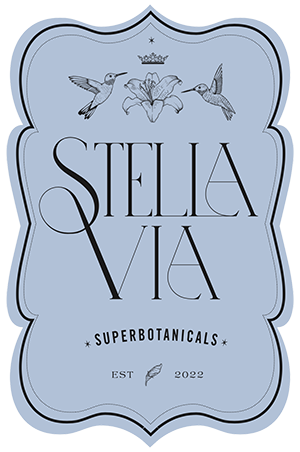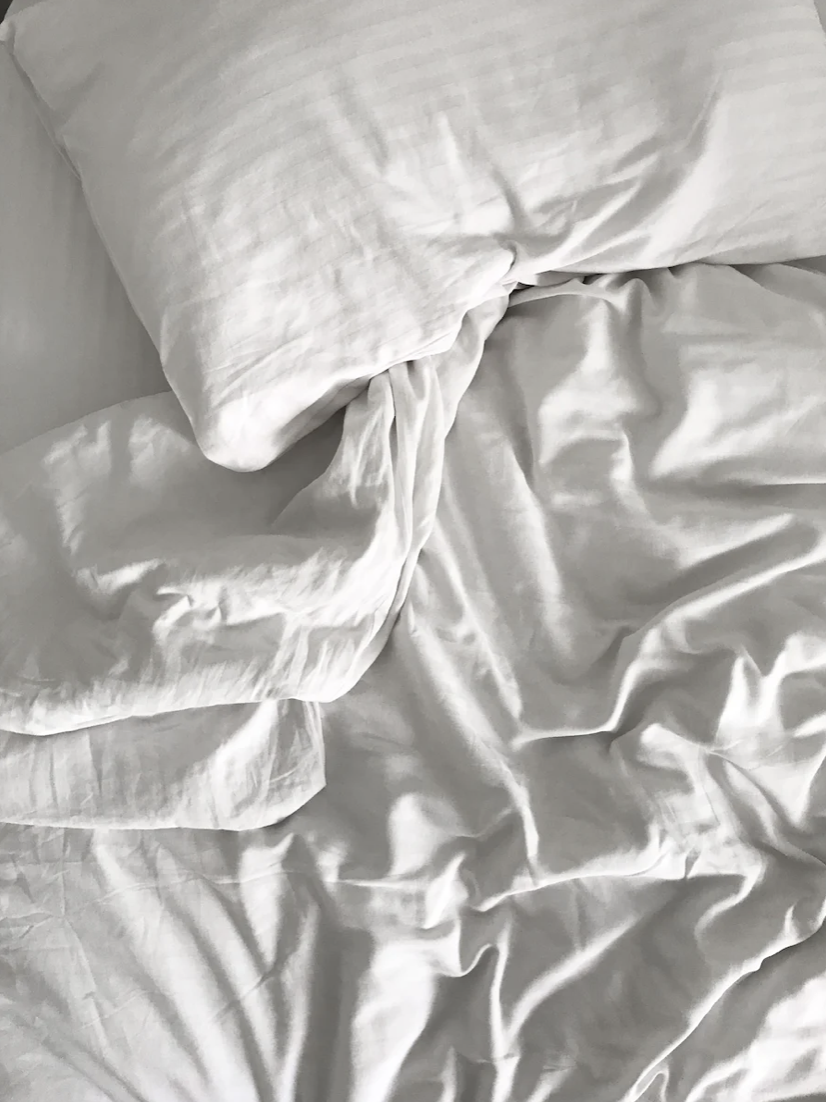

How does chocolate, that delicious treat that some of us can’t get enough of, help you sleep?
It turns out that chocolate is scientifically proven to help improve your sleep—a major boon for women going through perimenopause and menopause, when satisfying slumber can often elude you. For once, some scientifically-backed information that lets you satisfy a sweet craving AND feel rested and rejuvenated come morning..
The first aspect of chocolate that may help you drift off is the actual aroma of cocoa. Research has shown that certain types of brain activity associated with alertness (known as theta), drops big time when we smell chocolate, resulting in a relaxed state of mind that could help you feel ready to hit the hay.
Another plus–milk (preferably warm), also has hidden benefits. Most chocolate contains some milk, and who hasn’t relied on a nice warm glass of milk to soothe them in their childhood? Why is this? Milk contains Tryptophan, which helps your body produce the feel-good, sleep-inducing hormones serotonin and melatonin.
Another SuperBotanical™ Sleep Chocolates is skullcap. Despite sounding like the name of a beanie Carly Simon might have worn, it is indeed a flowering perennial plant native to North America. Skullcap has been used for centuries by Native Americans to treat nervousness and kidney problems. Today, though, it is widely included in remedies as a sedative and sleeping aid. The supplement contains a large amount of flavonoids that act similarly to benzodiazepines (depressants that produce sedation and relieve anxiety as well as muscle spasms) And they’re all natural!
Caution: Some types of chocolate contain both bromine and caffeine, which may actually keep you awake.
Theobromine is known for causing increased heart rate and sleeplessness, especially if taken too close to bedtime (it is also the ingredient that makes chocolate deadly for dogs to ingest). But, here’s a loophole. White chocolate doesn’t contain Theobromine, and neither does StellaVia’s SuperBotaniocal Sleep Chocolates so have your fill before bedtime.
Now, along with boasting all those other healthy, relaxing ingredients, Chocolate also contains high levels of caffeine. You know, the stuff you drink in the morning to wake up? On average, a bar of dark chocolate contains around 10 milligrams of caffeine, which is about the same as a cup of decaf. That shouldn’t be enough to ward off sleep for a whole night, but it’s best to indulge at least three or four hours before bedtime. Unless you are choosing to indulge in StellaVia’s SuperBotanical Sleep Chocolates which we’ve formulated carefully to be excellent before-bed, dream-inducing treats.
When you choose the right kind and formulation of chocolate that contains vitamins and minerals including calcium and magnesium to help regulate sleep, you should see results immediately.
These sweet treats also reduce stress and anxiety, which (as we all know) can keep you from a good night’s sleep. We’ve also added CBD (NOT the ingredient that makes you high) but instead a mild cannabinoid we already have in our bodies that can legally be sold in the U.S. when extracted from hemp.. It has a calming effect on the nervous system. In fact, 80% of participants in a study conducted by the Sleep Foundation found relief from anxiety symptoms after one month of use. Sixty-five percent saw an immediate improvement in sleep.
Check with your doctor before taking CBD in any form, as it may have a negative interaction with your other medications..
This essential mineral provides you with many health benefits, but who knew that a good night’s sleep was one of them? How it works: Magnesium helps regulate the body’s clock, as it calms your system and helps regulate your slumber so you don’t wake up at 4:45 a.m. Utilize magnesium to help naturally set your body clock to wake at a more civilized hour.
Potassium, which functions as a natural relaxant, plays an important role in falling asleep, and maintains an even more important one in helping you stay asleep all night. Unfortunately many of us don’t get the required amount of potassium to stay healthy (it helps with kidney function, heart health and bone density). Opt for dried apricots, baked potatoes, squash, and lentils to help maintain healthy levels.
Studies have shown that individuals treated for three months with daily zinc supplements fell asleep faster than those who didn’t use the supplement. .
During perimenopause and menopause, around 40% of women complain of sleep disturbances.. Blame the ever-powerful hormonal changes you are going through during this time, like the fluctuations in estrogen and progesterone. Sleep disturbances stem from anxiety, uncomfortable hot flashes, and disordered breathing (snoring and sleep apnea). When these types of symptoms last more than a few weeks, the condition is called insomnia. Insomnia can cause feelings of anxiousness and irritability, impair focus and memory and increase headaches and inflammation. And laying awake while you imagine everyone else on your block is sleeping soundly can make you feel lonely, like you’re the only person awake in the middle of the night.
One in four women in menopausal age range–as many as 61% of menpausal women – experience insomnia. To lessen these life-altering effects of sleep deprivation, there are several lifestyle choices you can make.
These include:
Conclusion:
One of your favorite sweet treats–when doctor-formulated – can help you get a solid, restful, rejuvenating night’s sleep. How wonderful would it be to wake up ready to face the day. Try StellaVia’s SuperBotanical Sleep Chocolates and StellaVia’s SuperBotanical Sleep Tonic